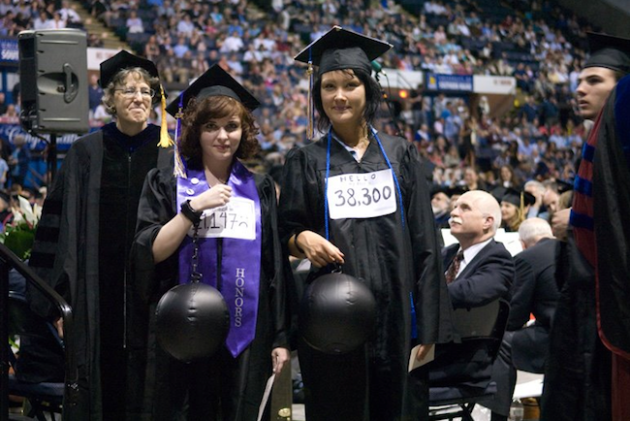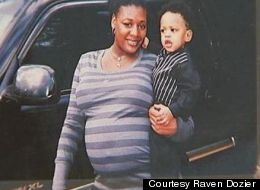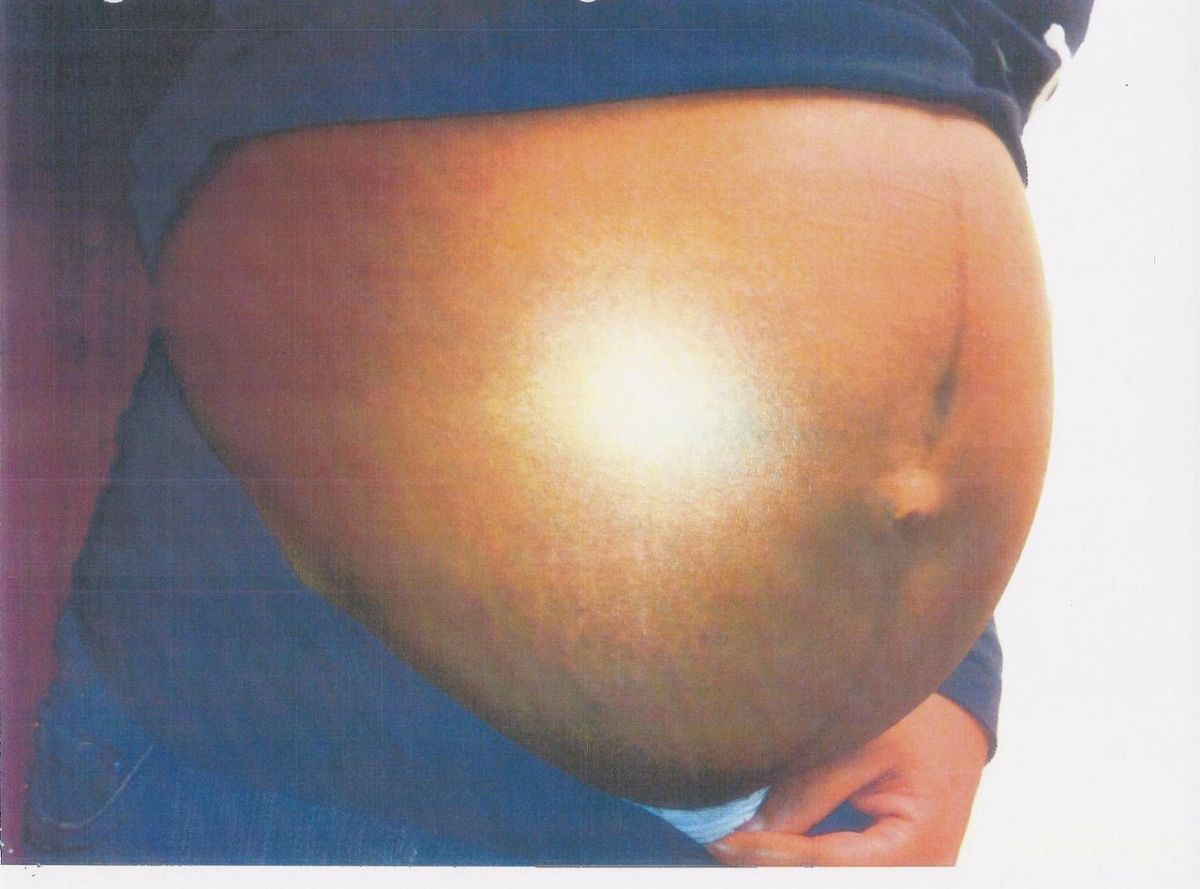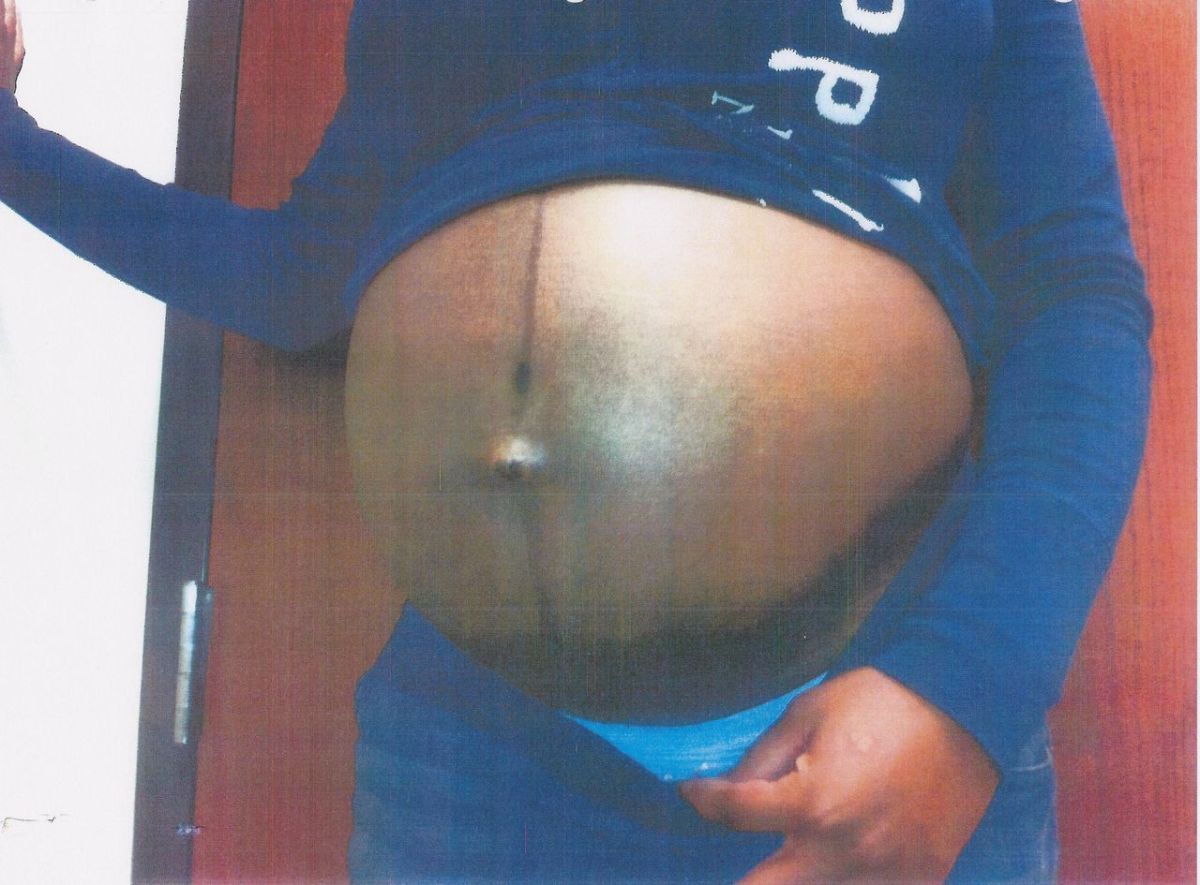
In the aftermath of the May Day 2007 police riot targeting migrant workers, members of the MacArthur Park area, youth and others joined together to support those targeted, those with no papers, those with less means, all others, from the bottom up. This blog is space for an exchange of ideas, news, recipes for survival and recipes for change. Please move with us, follow the blog, love us, support us and talk to us.Our audience is the world wide community in movement.Support one another.
Saturday, May 26, 2012
From Colombia with love..

From Colombia with love.. - National University students fire a homemade weapon during protests against the FTA between Colombia and United States.
Thursday, May 24, 2012
Police State:Man Gets Beat Up By Police In West Balitmore!
"A man says after seeing Baltimore Police Officers throw his friend to the ground he became scared and ran. Tiyon Williams who was just exiting a neighborhood store ran away from the incident after he saw police approach his friend. Williams says he surrendered putting his hand up in the air when police slammed him to the ground and began to beat him. Williams who has no criminal record was taking to hospital and left there." - 45News
‘Occupy Graduation’: Student activists broadcast debt owed with ball and chains

A handful of student activists are expressing their displeasure at the rising cost of college by wearing inflatable ball and chain accessories over their graduation robes. The props state the amount of debt with which they're graduating. The silent commencement protest, dubbed "Occupy Graduation" by its organizers, is taking place at seven universities around the country.
Ben Cohen, the co-founder of Ben & Jerry's ice cream, is helping pay for the protest and has raised about $400,000 to fund Occupy-related projects.
"A college education is so important and now it's only available to people who have a lot of money or to people who end up going into debt for the rest of their lives," Cohen told Yahoo News. The entrepreneur never completed college, but he thinks it's crucial to job success today.
Everardo Gonzalez, a 23-year-old criminal justice graduate of San Francisco State University, said he received "a bunch of positive feedback" from parents and fellow students for his participation in the quiet protest last Saturday at the graduation ceremony.
Gonzalez is graduating with $26,490 in federal loans and another $10,000 in credit card debt that he racked up while trying to make ends meet. His parents couldn't afford to help him pay for college, so he worked at a local Ikea, struggling to balance his class schedule with his job.
During Gonzalez's college career, San Francisco State University cut faculty salaries across the board, laid off staff, dramatically reduced the number of classes offered, hiked tuition and trimmed enrollment, all in response to the reduction in California's higher education budget. Gonzalez was forced to spend another year at school—and take out more loans to do so—after he couldn't find a way into the classes he needed for his major to graduate. (The crowded classes would fill up online within seconds.) The experience spurred him to join a group of student protesters linked with the Occupy Wall Street movement, who demonstrated against the cuts and other issues this year.
Gonzalez has landed a paid internship for next year, and plans to get a master's degree in political theory after that to become a teacher. Gonzalez's debt load is actually about average for graduating college students who took out loans. By attending an in-state school, qualifying for grants and relying solely on federal—not private—loans, Gonzalez has a manageable amount of loans with comparatively low interest rates.
"I'm not the poster child of student debt," he says, but adds that many of his friends are in a worse position. He believes college education should be free, and that existing student loans should be forgiven. Seeing his parents lose their home after the recession hit also made him passionate about advocating for more opportunities for middle-class and poor people. "The entire system is set up for people to fail unless they're privileged," he says.
Ivonne Quiroz, another San Francisco State University protester who graduated with a degree in biology last weekend, was also forced to stay at college for an extra semester after the immunology class she needed to graduate filled up. She's now walking down the aisle with about $21,000 in federal loans. Quiroz said the budget cuts also fueled her protest. "We're paying so much more, but we're getting so much less," she said.
Various Occupy movements have advocated for changing the law so that student debt can be discharged in bankruptcy, forgiving student loans altogether, and having zero percent interest loans for education. Interest rates on subsidized federal student loans are expected to double to 6.8 percent this year, unless Congress passes a law to extend the grace period. (Private loans have higher interest rates.) Still, on average, college graduates make far more money and enjoy lower unemployment rates than their peers who have only a high school diploma.

Another protest is planned for Hunter College in New York at the graduation ceremony on Tuesday. Monica Johnson, a 35-year-old Hunter College graduate student who's helping to organize the demonstration, borrowed about $15,000 in federally secured loans 15 years ago to pay for college. But in 2007, she decided to move to New York to get a master of fine arts degree at Pratt, a private school. She took out an additional $60,000 in loans, which ballooned to $88,000 after she dropped out of the program, dissatisfied. She now has a full-time job at an arts nonprofit and is enrolled at the much cheaper Hunter College, where she'll receive her MFA in December.
Johnson recently paid off $18,000 of her debt over a period of eight months, by subsisting on peanut butter and jelly sandwiches and paying for things only in cash, which she said helped her resist buying anything unnecessary. She's encouraging indebted graduates to form a union and negotiate with lenders to get lower rates or income-based repayment.
"What really pisses me off is I should never have been given those loans," Johnson said. "It honestly was the worst money I ever spent."
http://news.yahoo.com/blogs/lookout/occupy-graduation-student-activists-broadcast-debt-owed-ball-175457644.html
Police State: Undercover Police and/or Informants in Brigdeport

From the NLG press release, "The NLG believes that at least two undercover police or confidential informants, "Gloves" and "Mo," were used in a law enforcement operation that resulted in 9 arrests from a Wednesday house raid in Bridgeport. Six arrestees from that raid have been released without any charges and three are facing charges of possession of explosives or incendiary devices, material support for terrorism, and conspiracy, and were imposed $1.5 million D-Bonds. Gloves and Mo were apparently arrested with the 9 protesters, but soon after released.
Book Club Must Read:The Possessive Investment in Whiteness: How White People Profit from Identity Politics

"...exposes the identity politics of whiteness in the US state and society concealed under two prevalent views about racism: racism has been overthrown after the civil rights era, and invisibility of overt racism proves this point.",
"crucial in establishing linkages between cultural realm and economics and state. His work is an exposure and refusal of the cultural explanations for structural social problems, while at the same time identification of the problems within the framework of liberal individualism in a Western capitalist society.
Wednesday, May 23, 2012
Red Onion State Prison Hunger Strike!

We have now learned that the men at Red Onion State Prison are not only refusing meals but also refusing showers and refusing recreation time. We must support these courageous comrades who are actively revolting against the incarceration nation. “We’re tired of being treated like animals. There are only two classes at this prison: the oppressor and the oppressed. We, the oppressed, despite divisions of sexual preference, gang affiliation, race and religion, are coming together. We are rival gang members but now are united as revolutionaries.”
People Power India:En defensa de la tierra y la vida...by any means necessary!!
In defense of earth and life... por cualquier manera!!
En defensa de la tierra y la vida...by any means necessary!!
Thousands of Indians oppose Koodankulam Nuclear Power Project (KKNPP). Here dozens of women lie on the railroad tracks to oppose movement of any materials in and out of the dangerous plant.
No to all nuclear plants in the world!
En defensa de la tierra y la vida...by any means necessary!!

Thousands of Indians oppose Koodankulam Nuclear Power Project (KKNPP). Here dozens of women lie on the railroad tracks to oppose movement of any materials in and out of the dangerous plant.
No to all nuclear plants in the world!
Police State: Pregnant Woman Raven Dozier Kicked By Dekalb County Police Officer, Recalls Incident
 All Raven Dozier could think about was why her baby wasn't moving.
All Raven Dozier could think about was why her baby wasn't moving.
"Is my baby OK?" she recalls asking at that terrifying moment five months ago.
The 20-year-old Georgia woman was in her third trimester in December when a police officer in boots kicked her in the stomach, leaving her on the ground, gripping her belly in agony. "The baby would normally move a lot, but after the kick he wasn’t moving," said Dozier in an exclusive interview with The Huffington Post.
Dozier was nine months pregnant on the day the Dekalb County Police Department responded to a domestic disturbance involving her brother. At the time, she weighed around 180 pounds and describes herself as "huge."
"My stomach was big, my face was swollen," Dozier said. "I think the police officer should have been able to tell I was pregnant. I was clearly showing."
In the incident report filed Dec. 12, police officer Jerad Wheeler -- now under criminal investigation for kicking Dozier -- wrote that he gave "three verbal commands of 'Get back'" as she charged toward him.
But Dozier said she never charged the officer -- and wonders how she possibly could at nearly nine-months pregnant.
"I asked him, 'Why did you tase my brother?' said Dozier, who admits that her brother, Darius Usher, was acting "belligerent" during a custody dispute with the mother of his child. "I was on the left side of the officer, and he stepped back and kicked me."
In his police report, Wheeler wrote that "when Ms. Dozier was about three feet from me, I kicked her in the stomach to push her back. The kick was a front push kick to the abdomen as I was taught to do in the academy."
But Dozier's attorney, Mark Bullman, said that his client never charged at Wheeler, that she was attempting to calm her brother and that at such a late stage of pregnancy, it's more likely that she was "waddling like a penguin."
"Either the man couldn't tell the woman was pregnant -- in which case, you wonder why someone that stupid is allowed to carry a badge and a gun -- or he is lying," Bullman said. "I guess at this point we can’t tell."
Wheeler wrote in the Dec. 12 police report that he didn't realize her condition. "I could not tell by the sight of her at the time that she was pregnant."
Police charged Dozier with obstruction and disorderly conduct, a move Bullman said was done to justify the use of force. Those charges have since been dropped.
Two weeks after the incident, Dozier prematurely delivered her child by cesarean section. Doctors said that leaking fluids in her uterus were threatening her son's life.
Today, Dozier's little boy, Levi, is healthy and about 4 months old. "That’s all I was worried about," she said. "That’s all I was thinking about."
Dozier is not sure if she trusts police after her experience. She's now suing the county as the district attorney investigates Wheeler's actions. "Why would he kick me?" she said. "The police are supposed to protect, I don't know if something happens in the future that I want them to protect me."
Requests for comment from the Dekalb police were not immediately returned.


R.I.P Damon Abraham: Tasered 4 Times While Handcuffed & Witnesses: Beaten To Death By Police
US police accused of abuse with tasers
Chicago_AntiCapitalist_March Police Brutality caught on tape
Violent attack by Chicago police on anti-NATO
protesters (RAW VIDEO)
Black Bloc Meets Chicago Cops
We were never more free than when we fought for our liberty!
Sunday, May 13, 2012
The Radical History of Mother's Day
There’s a good number of us who question holidays like Mother’s Day in which you spend more time feeding money into a system that exploits our love for our mothers than actually celebrating them. It’s not unlike any other holiday in America in that its complete commercialization has stripped away so much of its genuine meaning, as well its history. Mother’s Day is unique in its completely radical and totally feminist history, as much as it has been forgotten.
Mother’s Day began in America in 1870 when Julia Ward Howe wrote the Mother’s Day Proclamation. Written in response to the American Civil War and the Franco-Prussian War, her proclamation called on women to use their position as mothers to influence society in fighting for an end to all wars. She called for women to stand up against the unjust violence of war through their roles as wife and mother, to protest the futility of their sons killing other mothers’ sons.
Howe wrote:
Arise, then, women of this day!
Say firmly: "We will not have great questions decided by irrelevant agencies, Our husbands will not come to us, reeking with carnage, for caresses and applause. Our sons shall not be taken from us to unlearn All that we have been able to teach them of charity, mercy, and patience. We, the women of one country, will be too tender of those of another country To allow our sons to be trained to injure theirs."
[Read the remainder of Howe's quote here]
The holiday caught on years later when a West Virginia women’s group led by Anna Reeves Jarvis began promoting it as a way to reunite families after the Civil War. After Jarvis’ death, her daughter began a campaign for the creation of an official Mother’s Day in honor of peace. Devoting much of her life to the cause, it wasn’t until 1914 when Woodrow Wilson signed it into national observance in 1914.
The holiday flourished, along with the flower industry. The business journal, the Florists Review, actually admitted to its desire to exploit the holiday. Jarvis was strongly opposed to every aspect of the holiday’s commercialization, arrested for protesting the sale of flowers, and petitioning to stop the creation of a Mother’s Day postage stamp.
Today we are in multiple wars that continue to claim the lives of thousands of sons and daughters. We are also experiencing a still-rising commercialization of nearly every aspect of life; the exploitation of every possible human event and emotion at the benefit of corporations.
Let’s take this Mother’s Day to excuse ourselves from the pressure to consume and remember its radical roots – that mothers, or rather all women, in fact, all people, have a stake in war and a responsibility as American citizens to protest the incredible violence that so many fellow citizens, here and abroad, must suffer through.
The thousands of civilian casualties in Afghanistan and Iraq as well as the devastating impact of post-traumatic stress disorder on our veterans are just the beginning of the terrible repercussion of war. As we saw last week an announcement of an extension of the military occupation of Afghanistan, let this mother’s day be a day after Julia Ward Howe’s own heart as we stand up and say no to 12 more years of war.
http://www.nationofchange.org/radical-history-mother-s-day-1336835841
Thursday, May 10, 2012
Tattoo in sheriff's deputy clique celebrates shootings
 The investigation into a secret clique within the Los Angeles County sheriff's elite gang unit has uncovered allegations that members had matching tattoos of a gun-toting skeleton, which deputies would modify to celebrate their involvement in a shooting, according to sources close to the internal probe.
The investigation into a secret clique within the Los Angeles County sheriff's elite gang unit has uncovered allegations that members had matching tattoos of a gun-toting skeleton, which deputies would modify to celebrate their involvement in a shooting, according to sources close to the internal probe.
One deputy, who has admitted belonging to a clique called the "Jump Out Boys," has identified about half a dozen other deputies as members, one source confirmed. Those men are expected to be summoned for interviews with internal affairs investigators, the source said.
Suspicion about the group's existence was sparked several weeks ago when a supervisor discovered a pamphlet laying out the group's creed, which promoted aggressive policing and portrayed officer shootings in a positive light.
The pamphlet was found in the vehicle used by the deputy who acknowledged his association with the clique, according to sources who requested anonymity because they were not authorized to speak about the ongoing investigation.
Days after The Times reported on the discovery of the pamphlet, the captain of the division gathered his deputies for a private briefing, during which he told them they had shamed the department by forming the group and urged those responsible to identify themselves, a source with knowledge of the unit's inner workings said.
At some point, one deputy came forward, and he has since named about six others, the source said.
Internal affairs investigators are trying to determine whether the deputies violated Sheriff's Department rules or committed serious misconduct.
The deputies under scrutiny all work on the Gang Enforcement Team, a unit divided into two platoons of relatively autonomous deputies whose job is to target neighborhoods where gang violence is high, locate armed gang members and take their guns away.
The design of the tattoo, confirmed by two sources, includes an oversize skull with a wide, toothy grimace and glowing red eyes. A bandanna wraps around the skull, imprinted with the letters "OSS" — representing Operation Safe Streets, the name of the larger unit that the Gang Enforcement Team is part of. A bony hand clasps a revolver. Investigators suspect that smoke is tattooed over the gun's barrel after a member is involved in a shooting.
To the left of the skull are two playing cards — an ace and an eight — apparently an allusion to the "dead man's" poker hand, sources said.
One source compared the notion of modifying the tattoo after a shooting to a celebratory "high five."
Celebrating shootings and sporting matching tattoos were hallmarks of anti-gang officers in the LAPD's troubled Rampart Division in the late 1990s.
A corruption scandal erupted after one disgraced officer implicated himself and others in covering up bad shootings, planting evidence, falsifying reports and perjuring themselves to rid the streets of gang members and drug dealers.
In fact, the tattoo allegedly embraced by the Jump Out Boys is reminiscent of the one inked on Rampart officers, which consisted of a grinning skull in a cowboy hat with pairs of aces and eights fanned out in the background.
Sources say there is no evidence that deputies alleged to be in the clique have been involved in improper shootings or other misconduct. But the new revelations have heightened concerns.
The modified tattoos could also pose problems for the department in future litigation, making it more difficult for county attorneys to argue against lawsuits alleging bad shootings.
Sheriff Lee Baca's spokesman, Steve Whitmore, declined to discuss details of the investigation because it is ongoing. "We take this very seriously," he said. "This is absolutely no joke whatsoever."
The department has been grappling with unsanctioned cliques in its ranks for decades.
Last year, the department fired a group of deputies who all worked on the third, or "3000," floor of Men's Central Jail after the group fought two fellow deputies at an employee Christmas party and allegedly punched a female deputy in the face.
Sheriff's officials later said the men had formed an aggressive "3000" clique that used gang-like three-finger hand signs. A former top jail commander told The Times that jailers would "earn their ink" by breaking inmates' bones.
The Jump Out Boys, sources said, was a name coined by Compton-area gang members alluding to how quickly deputies from the unit would jump out of patrol vehicles to stop them.
Other cliques — with names like Grim Reapers, Little Devils, Regulators and Vikings — have been accused of breeding a gang-like mentality in which deputies falsify police reports, perjure themselves and cover up misconduct. Past affiliation with such groups reaches the highest levels of the department.
Baca acknowledged last year that his second-in-command, Paul Tanaka, has a Vikings tattoo. Tanaka has said the Vikings was a nickname for deputies assigned to the Lynwood station and did not represent anything sinister.
Some argue that the groups are not inherently problematic, providing cops working a dangerous job with camaraderie and emotional support. Experts say cliques become a problem when they push officers to put their comrades ahead of the law and department policy.
What investigators are most concerned about with the Jump Out Boys isn't the alleged matching tattoos, but the suspected admiration they show for shootings. Officer-involved shootings are expected to be events of last resort.
Maria Haberfeld, a professor at John Jay College of Criminal Justice in New York who specializes in police ethics and training, said joining police subcultures makes officers "vulnerable to be compromised by group think and group pressure." Tattoos that further distinguish officers involved in shootings, she said, are particularly problematic.
"Even though they are authorized to use deadly force, I don't think it's a cause for celebration," she said. "When you reach a point in your career that you have no choice but to use deadly force, if anything it's incredibly traumatic for the shooter. It's a little bizarre to commemorate a tragic event."
Other cliques — with names like Grim Reapers, Little Devils, Regulators and Vikings — have been accused of breeding a gang-like mentality in which deputies falsify police reports, perjure themselves and cover up misconduct. Past affiliation with such groups reaches the highest levels of the department.
Baca acknowledged last year that his second-in-command, Paul Tanaka, has a Vikings tattoo. Tanaka has said the Vikings was a nickname for deputies assigned to the Lynwood station and did not represent anything sinister.
Some argue that the groups are not inherently problematic, providing cops working a dangerous job with camaraderie and emotional support. Experts say cliques become a problem when they push officers to put their comrades ahead of the law and department policy.
What investigators are most concerned about with the Jump Out Boys isn't the alleged matching tattoos, but the suspected admiration they show for shootings. Officer-involved shootings are expected to be events of last resort.
Maria Haberfeld, a professor at John Jay College of Criminal Justice in New York who specializes in police ethics and training, said joining police subcultures makes officers "vulnerable to be compromised by group think and group pressure." Tattoos that further distinguish officers involved in shootings, she said, are particularly problematic.
"Even though they are authorized to use deadly force, I don't think it's a cause for celebration," she said. "When you reach a point in your career that you have no choice but to use deadly force, if anything it's incredibly traumatic for the shooter. It's a little bizarre to commemorate a tragic event."
http://mobile.latimes.com/p.p?m=b&a=rp&id=2095242&postId=2095242&postUserId=7&sessionToken&catId=6978&curAbsIndex=0&resultsUrl=DID%3D6&DFCL=1000&DSB=rank%23desc&DBFQ=userId%3A7&DL.w&DL.d=10&DQ=sectionId%3A6978&DPS=0&DPL=3
Subscribe to:
Comments (Atom)





















